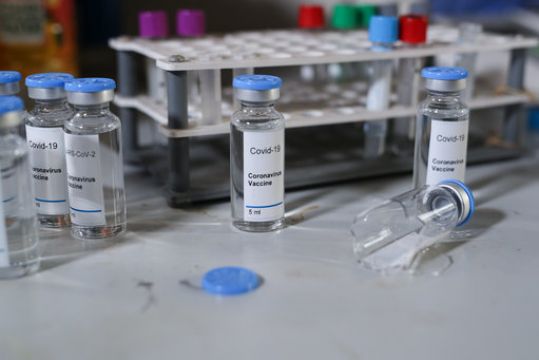People with diabetes and obesity should be prioritised for early Covid-19 vaccination, according to both metabolic doctors and Diabetes Ireland.
The Irish Society for Clinical Nutrition and Metabolism (IrSPEN) said that diabetes and obesity have emerged as significant underlying risk factors for developing severe illness from Covid-19 — and these patients should also be prioritised for continuity of treatment during the pandemic.
IrSPEN spokesperson and Obesity Specialist at St Vincent’s University Hospital Professor Carel le Roux said: “Intensive Care Units (ICUs) are currently filling up with many younger patients who have underlying diabetes and obesity and have contracted Covid-19.
“People with more severe obesity and more severe type 1 and type 2 diabetes are at most risk. These patients are now not being ventilated as quickly as in the first wave, because we understand that the reason their oxygen levels become so low has as much to do with their underlying condition, rather than the coronavirus being the sole cause.
“Diabetes and obesity cause inflammation of small blood vessels around the lungs and other organs — and this is then exaggerated by Covid-19.
“This understanding highlights the importance of continuity of existing treatments for patients with diabetes and obesity as a part of managing the impact of the virus. It also highlights the importance of vaccinating this cohort of patients to minimise hospitalisation,” he said.
Diabetes Ireland advocacy research manager Dr Anna Clarke said: “We now know that the worse the control of diabetes, the higher the risk of serious complications from Covid-19. Medical research over the past 10 months shows the importance of people with diabetes and obesity continuing to take their medications and attend appointments, even if these are virtual.”
Continuity of care
St Vincent’s University Hospital consultant surgeon and IrSPEN member Professor Helen Heneghan said: “The consensus amongst Metabolic Doctors who specialise in treating these conditions is that these patients should be prioritised both for vaccination — and continuity of care.
“Many patients with diabetes and obesity have had their treatments postponed or deprioritised within hospital care in recent months. The relationship between these conditions and the development of severe illness from Covid-19 means we should continue to treat patients.”
Dr Mick Crotty, a Dublin based GP, added: “Our thinking about the virus has changed from it causing a disease of the inside of the lung towards considering it as a disease that reduces blood flow immediately outside the lungs, thus reducing oxygen transport. The virus accelerates underlying complications of diseases such as diabetes and obesity.
“The Covid-19 pandemic has alerted us to the vulnerability of patients with diabetes and obesity who should be prioritised for vaccination. We should redouble efforts to help these patients through the Covid-19 pandemic, and doing so would benefit hospitalisation and mortality rates.”







